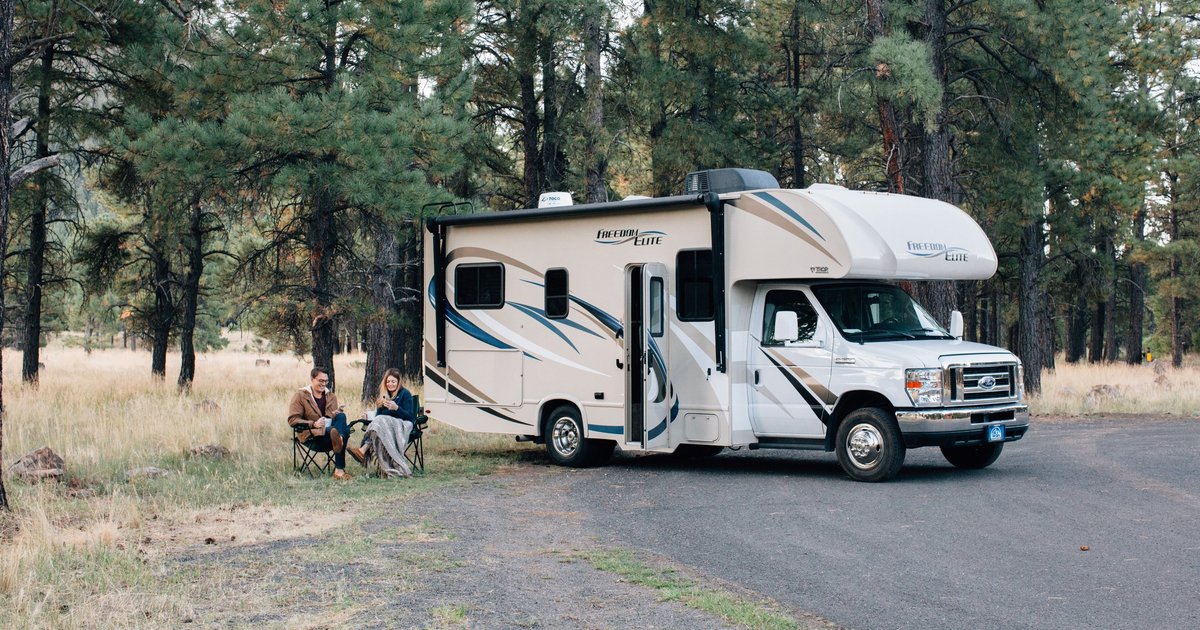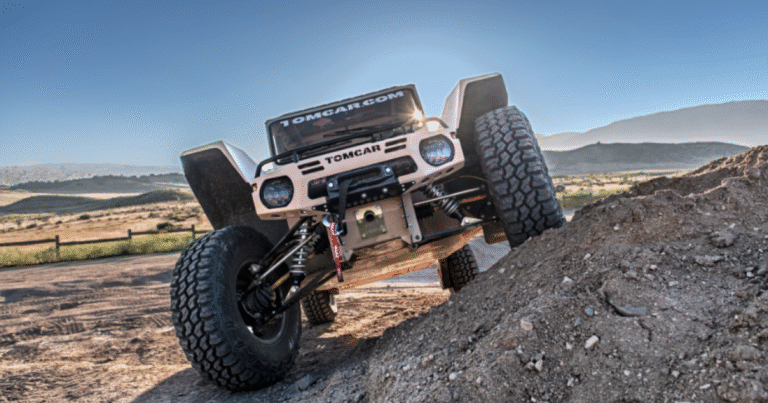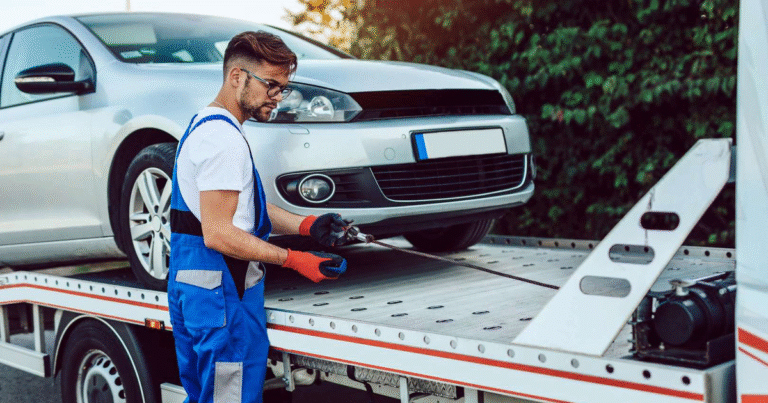RV Insurance: Everything You Need to Know Before Hitting the Road
If you own a recreational vehicle or are thinking about buying one, there is one crucial element you cannot afford to overlook: RV insurance. Unlike standard car insurance, RV insurance combines aspects of auto and homeowner’s coverage. It protects not only your vehicle but also the belongings inside, offering financial security while you are on the road or parked at a campsite.
An RV is more than just a mode of transportation. It is your home on wheels, packed with valuable possessions, personal mementos, and sometimes even pets. This makes protecting it even more important. Whether you use your RV for weekend getaways, long road trips, or live on the road full-time, having the right insurance provides peace of mind in case of accidents, natural disasters, theft, or unexpected mishaps. Without it, even minor damages can turn into costly setbacks, leaving you with unexpected expenses that can quickly overshadow the joy of RV living.
Why You Need RV Insurance
RVs are significant investments, often costing tens or even hundreds of thousands of dollars. Protecting them is essential because accidents and unforeseen events can happen at any time. Liability coverage ensures that you are protected if someone is injured while around your RV or if property is damaged. For motorized RVs, insurance is required by law in most states, making it not just a smart choice but often a legal necessity. Even for towable RVs, having coverage is strongly recommended to avoid unexpected financial losses.
Think about it this way: without insurance, a single collision, theft, or act of nature could erase the savings you set aside for years to enjoy RV life. Imagine investing in a top-of-the-line Class A motorhome and having a hailstorm cause extensive damage while it sits parked at your favorite campground. The repair costs alone could reach tens of thousands of dollars. Insurance ensures that such setbacks don’t derail your lifestyle. It’s a financial safety net that allows you to enjoy the open road with confidence.
RV insurance also protects you from liability claims. If someone slips while entering your RV or if your RV causes damage to another person’s property, insurance covers the resulting legal and medical costs. In essence, RV insurance safeguards both your investment and your financial future.
Types of RVs That Require Insurance
Not all RVs are created equal, and their insurance needs vary accordingly. Class A motorhomes are the most luxurious and bus-like, often equipped with high-end appliances, elaborate interiors, and advanced electronics. Because they are expensive to repair or replace, comprehensive insurance is essential. Class B motorhomes, commonly called camper vans, are smaller and more maneuverable, but they still include living facilities and valuable equipment that need protection. Class C motorhomes sit in the middle, offering a sleeping area above the cab and ample living space, making them ideal for families who want comfort without the cost of a Class A.
Towable RVs such as travel trailers and fifth wheels rely on another vehicle for movement. While your auto insurance may cover the towing vehicle, the trailer itself requires its own policy to protect against physical damage and liability. Smaller RVs, including pop-up campers and truck campers, may appear simple, but they are still exposed to weather damage, theft, and liability risks. Even a lightweight pop-up can be destroyed by wind or vandalism, making insurance a worthwhile investment.
When considering insurance for any type of RV, it’s important to match coverage to both the vehicle’s size and how you plan to use it. Full-time RVers need more comprehensive protection than weekend travelers, and the same policy that works for a Class B camper van might not suffice for a luxury Class A motorhome.
What RV Insurance Covers
RV insurance policies are highly customizable, but they generally include several core coverages. Liability coverage protects against bodily injury and property damage you may cause while operating your RV, ensuring that medical bills or repair costs for others do not fall on your shoulders. Collision coverage pays for repairs or replacement if your RV is damaged in an accident, regardless of who is at fault. This coverage is particularly important given how expensive RV repairs can be, especially for motorhomes with complex systems.
Comprehensive coverage guards against non-collision-related events such as theft, vandalism, natural disasters, or hitting an animal. This ensures that your RV is protected even when it’s parked at a campground or in storage. Uninsured or underinsured motorist protection covers you if another driver lacks adequate insurance, while personal property coverage safeguards your belongings inside the RV, from electronics to appliances to clothing.
Vacation liability applies when your RV is stationary and used as a temporary residence, covering injuries or property damage that occur around your vehicle at a campground or park. Emergency expenses provide support for lodging, meals, and transportation if your RV becomes uninhabitable during a trip, keeping you safe and comfortable when unexpected events occur. Together, these coverages create a robust safety net for any RV owner.
Optional Add-Ons for Extra Protection
Some RV owners may choose to enhance their policy with additional coverage options. Full replacement cost coverage ensures you receive a new RV of the same make and model if yours is totaled, rather than the depreciated value. Roadside assistance provides emergency towing, jump-starts, flat tire repairs, fuel delivery, and locksmith services, which is especially valuable for travelers in remote areas. Total loss replacement guarantees a brand-new RV if it is declared a total loss within the first few years, preventing financial setbacks for newer vehicles. Pet injury coverage covers veterinary bills if your pet is injured in an accident while inside the RV, which is an excellent option for animal lovers who travel with pets.
Other optional add-ons may include equipment coverage for expensive electronics or appliances, specialized coverage for off-road use, and coverage for items stored inside the RV while it is not being driven. The goal is to tailor your policy to your lifestyle so that you’re not just meeting legal requirements, but genuinely protecting the investment you’ve made in your home on wheels.
How Much RV Insurance Costs
Several factors influence the cost of RV insurance. The type and class of your RV is a major determinant. Larger, more luxurious RVs naturally cost more to insure due to higher repair expenses. Full-time RVers, who use their vehicle daily, face higher premiums than those who travel only occasionally.
Storage location also matters. Parking your RV in a secure, low-crime area can lower premiums, while urban or high-theft zones may increase rates. Your driving history plays a role as well; insurers reward drivers with clean records, while past accidents or traffic violations can raise your premium. Coverage limits and deductibles also affect costs. A higher deductible lowers your premium but increases out-of-pocket expenses in the event of a claim. Finally, state requirements influence pricing because minimum coverage standards differ from one state to another. Understanding these factors helps you choose a policy that balances affordability with adequate protection.
Finding the Best RV Insurance Policy
Shopping for RV insurance requires careful consideration. Start by comparing quotes from multiple providers, as premiums and coverage options can vary widely. Bundling your RV insurance with existing home or auto policies often saves money. Always read the fine print to understand inclusions, exclusions, and how claims are processed.
Ask insurers about available discounts, such as safe driving rewards, anti-theft devices, or RV club memberships. Evaluating customer reviews and feedback about the claims process can provide insight into how efficiently a company handles claims. Choosing the right insurer ensures your claims are handled promptly and fairly, giving you confidence that your RV and belongings are protected no matter where your travels take you.
Trusted RV Insurance Providers
Several reputable companies offer RV insurance coverage. Progressive is known for comprehensive policies and flexible options. Good Sam caters to full-time RVers and offers discounts for RV club members. Geico and State Farm provide competitive rates and nationwide coverage, while National General specializes in recreational vehicle insurance with policies tailored to specific RV classes and usage patterns. Comparing these providers ensures you find coverage that fits your lifestyle and your RV’s unique needs.
Why RV Insurance Is Worth It
RV insurance is a financial safety net that protects your investment, your belongings, and your family. It allows you to travel with peace of mind, knowing that accidents, natural disasters, or theft will not derail your plans. Proper coverage safeguards against legal liabilities, property damage, and unexpected expenses, so you can focus on the joy of RV living.
Owning an RV opens the door to freedom and adventure, but it also comes with responsibility. Insurance is not just a legal requirement for motorized RVs; it is a smart way to protect the lifestyle you’ve worked hard to enjoy. Imagine arriving at a remote campsite only to find your RV has been vandalized or suffers mechanical damage. Insurance ensures that you can recover quickly without a financial crisis.
Frequently Asked Questions About RV Insurance
Many RV owners have questions about coverage. Motorized RVs generally require insurance by law, while towable RVs do not, though coverage is highly recommended. Some insurers offer seasonal or storage options that reduce premiums when your RV is not in use, though comprehensive protection is still advisable. Coverage for international travel depends on your policy, and some insurers extend protection into Canada or Mexico. Full-time and part-time RVers have different needs, with full-time insurance providing more robust liability and property coverage.
A deductible is the amount you pay out of pocket before your insurance benefits apply. Selecting the right deductible is key to balancing cost and protection. Higher deductibles lower premiums but increase your personal expense in a claim. Understanding how your policy works, including limits, exclusions, and optional add-ons, ensures you are prepared for any situation.
Conclusion
Owning an RV is about freedom, exploration, and creating memories on the open road. But with that freedom comes the responsibility of protecting your investment. RV insurance ensures that accidents, theft, natural disasters, or liability issues do not ruin your adventures.
Before you hit the road, evaluate your insurance needs, compare quotes, and select a policy that provides comprehensive coverage and peace of mind. When you have the right RV insurance, you can focus on what truly matters: enjoying the journey, making memories, and embracing life on the road without worrying about what could go wrong. With proper planning and the right coverage, RV ownership can remain a source of joy, freedom, and security for years to come.






